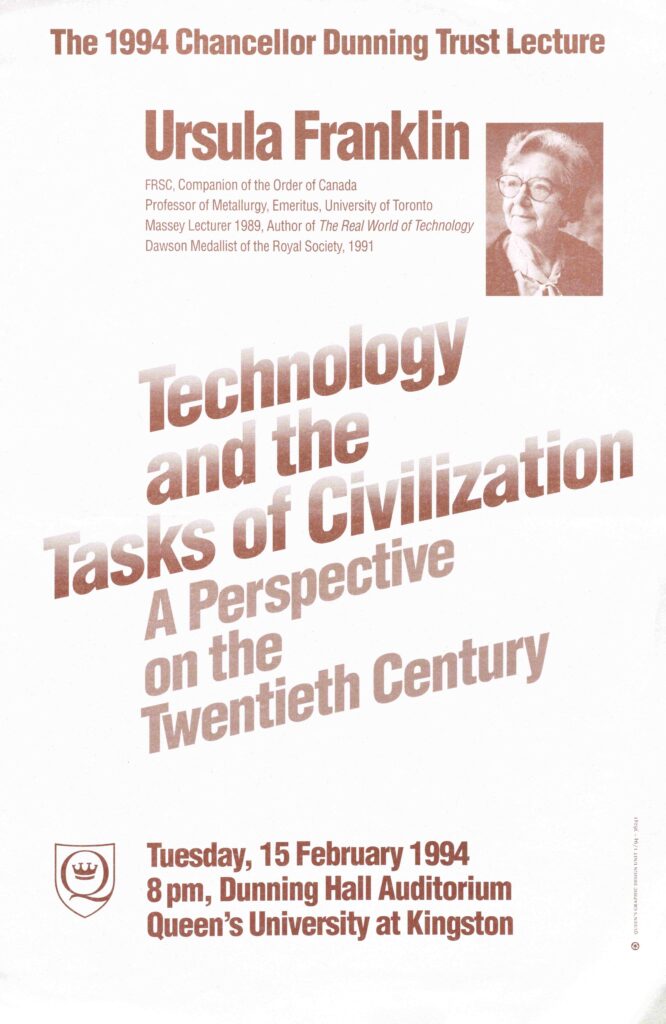
Ursula Franklin was a scientist, activist, and public figure known for her peace and climate activism. Franklin received her Ph.D. in experimental physics at the Technical University of Berlin in 1948, coming to Canada the following year. She joined the University of Toronto’s Department of Metallurgy and Materials Science in 1967, becoming a full professor in 1973. In 1984, she became the first woman to hold the title of University Professor there. Over her career, Franklin published more than 70 scholarly papers and major contributions to books on the structure and properties of metals and alloys, as well as the history and social impact of technology. She made significant contributions to CBC Radio’s Ideas program including the episodes on Democracy, Technology, and Terrorism (1979), Nuclear Peace (1982), The Northern Front (1986), and Complexity and Management (1987). Franklin was the 1989 Massey Lecturer. Her lectures were published in The Real World of Technology (1990). Franklin was a Companion of the Order of Canada, a Fellow of the Royal Society of Canada, and a board member of the National Research Council and the Science Council of Canada, where she headed the Conserver Society Study. As a Quaker, Franklin was actively involved in work for peace and justice, international understanding, and issues related to women, especially through the organization Voice of Women, where she coordinated the collection of children’s teeth for strontium-90 radiation measurements in the early 1960s. Franklin received a number of awards, including the Elsi Gregory McGill Memorial Award and the Wiegand Award. In 2012, she was inducted into the Canadian Science and Engineering Hall of Fame.
Her Dunning Trust lecture was on February 15, 1995.